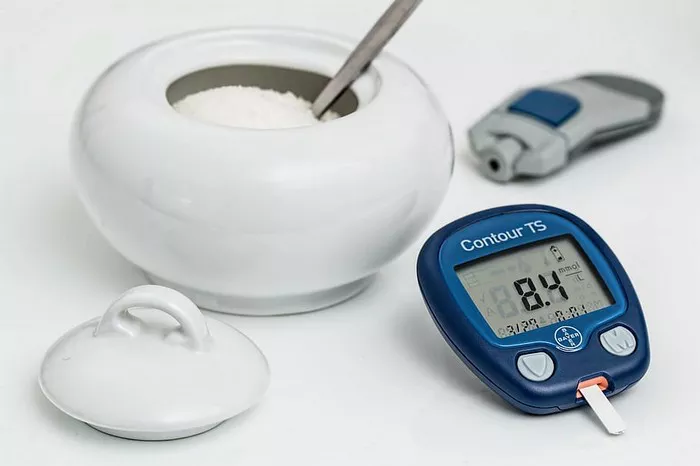In the realm of metabolic health, misconceptions often abound, and one such misconception is the notion of increasing insulin resistance. However, the reality is quite the opposite. The goal is to decrease insulin resistance to maintain optimal health and prevent complications associated with conditions like type 2 diabetes. In this article, we will delve into the intricacies of insulin resistance, its impact on metabolic health, and actionable strategies for improving insulin sensitivity.
Explanation of Insulin Resistance
Insulin resistance is a condition characterized by reduced responsiveness of cells to the hormone insulin. Insulin, produced by the pancreas, plays a crucial role in regulating blood sugar levels by facilitating the uptake of glucose into cells. However, when cells become resistant to insulin, glucose remains in the bloodstream, leading to elevated blood sugar levels. This dysregulation can have far-reaching consequences for metabolic health, including an increased risk of type 2 diabetes, cardiovascular disease, and other chronic conditions.
Importance of Improving Insulin Sensitivity
Improving insulin sensitivity is paramount for maintaining optimal blood sugar control, preventing complications, and promoting overall health and well-being. Enhanced insulin sensitivity allows cells to effectively respond to insulin’s signals, facilitating glucose uptake and utilization, thus keeping blood sugar levels within a healthy range.
Lifestyle Modifications
Lifestyle modifications play a pivotal role in improving insulin sensitivity and reducing insulin resistance. Adopting healthy habits can positively impact metabolic health in various ways:
Healthy Eating: Focus on consuming whole, nutrient-dense foods while minimizing processed foods and added sugars. Incorporate plenty of fruits, vegetables, whole grains, lean proteins, and healthy fats into your diet to support optimal metabolic function.
Regular Exercise: Engage in regular physical activity to improve insulin sensitivity and promote overall health. Aim for a combination of aerobic exercises, such as brisk walking or cycling, and strength training exercises to maximize the benefits.
Weight Management: Maintaining a healthy weight or achieving weight loss if overweight or obese is essential for improving insulin sensitivity. Set realistic weight loss goals and adopt sustainable dietary and exercise habits to support long-term success.
Stress Reduction: Chronic stress can contribute to insulin resistance. Practice stress-reduction techniques such as meditation, deep breathing exercises, or engaging in enjoyable activities to promote relaxation and improve insulin sensitivity.
Adequate Sleep: Prioritize sufficient quality sleep each night to support metabolic health and insulin sensitivity. Aim for 7-9 hours of sleep per night and establish a consistent sleep schedule to optimize overall well-being.
Dietary Strategies
Specific dietary recommendations can help improve insulin sensitivity and promote metabolic health:
Focus on Whole, Nutrient-Dense Foods: Choose foods that are rich in vitamins, minerals, and antioxidants to support overall health and well-being.
Minimize Processed Foods and Added Sugars: Limit intake of processed foods, sugary snacks, and beverages that can contribute to insulin resistance and metabolic dysfunction.
Incorporate Fiber-Rich Foods: Include plenty of fruits, vegetables, legumes, and whole grains in your diet to promote satiety, regulate blood sugar levels, and improve insulin sensitivity.
Choose Healthy Fats: Opt for sources of healthy fats such as avocados, nuts, seeds, and olive oil, which can help improve insulin sensitivity and support cardiovascular health.
Include Lean Proteins: Incorporate lean protein sources such as poultry, fish, tofu, and legumes into your meals to support muscle health and metabolic function.
Exercise Recommendations
Regular physical activity is key to improving insulin sensitivity and reducing insulin resistance. Incorporate both aerobic exercises and strength training into your routine for optimal results:
Aerobic Exercises: Engage in activities such as walking, jogging, cycling, or swimming to increase heart rate and improve cardiovascular health.
Strength Training: Include resistance exercises such as weightlifting or bodyweight exercises to build muscle mass, improve metabolic function, and enhance insulin sensitivity.
Weight Management
Maintaining a healthy weight is essential for optimizing insulin sensitivity and reducing insulin resistance. Focus on adopting sustainable dietary and exercise habits to support weight management:
Set Realistic Goals: Establish achievable weight loss goals and track your progress over time to stay motivated and on track.
Adopt Healthy Habits: Embrace a balanced diet, regular exercise, adequate sleep, and stress management techniques to support long-term weight management and metabolic health.
Medical Interventions
In some cases, medical interventions may be necessary to improve insulin sensitivity and manage insulin resistance. Healthcare professionals may recommend the following interventions:
Medications: Certain medications, such as insulin-sensitizing drugs or diabetes medications, may be prescribed to improve insulin sensitivity and regulate blood sugar levels.
Insulin Therapy: In cases of severe insulin resistance or advanced diabetes, insulin therapy may be required to manage blood sugar levels effectively.
Monitoring Progress
Monitoring progress is essential for tracking improvements in insulin sensitivity and reducing insulin resistance. Keep track of the following factors:
Blood Sugar Levels: Monitor your blood sugar levels regularly to assess your response to lifestyle modifications and medical interventions.
Dietary and Exercise Habits: Keep a food and exercise diary to track your dietary intake, physical activity levels, and adherence to lifestyle modifications.
Symptoms and Well-Being: Pay attention to changes in symptoms, energy levels, and overall well-being as indicators of improved metabolic health.
Conclusion
Improving insulin sensitivity and reducing insulin resistance are fundamental steps towards optimizing metabolic health and preventing complications associated with conditions like type 2 diabetes. By implementing lifestyle modifications, dietary strategies, exercise recommendations, and seeking guidance from healthcare professionals, individuals can take proactive steps towards achieving better metabolic health and overall well-being. Remember, small changes can lead to significant improvements in insulin sensitivity and long-term health outcomes. Stay committed to your journey towards better health, and remember to consult with healthcare professionals for personalized guidance and support along the way. Here’s to a healthier, happier future for all.
Related Topics:
Type 2 Diabetes And Insulin Resistance

























